The shoebill stork has been called the world’s most terrifying bird, but i guess that depends on your perspective.
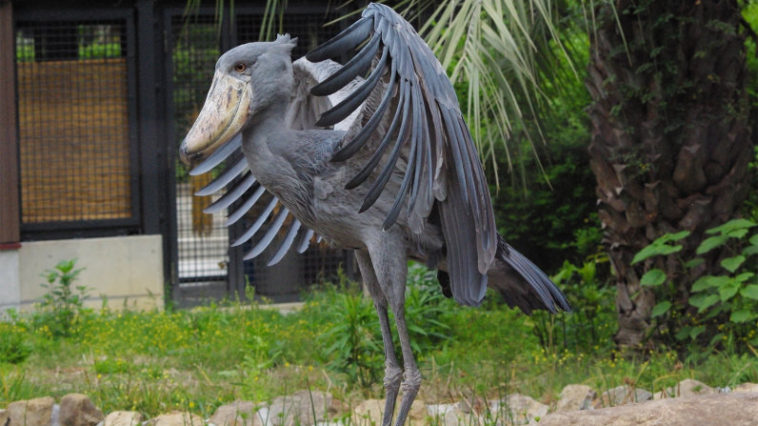
A shoebill looks like it either has the same goofy charm as the long-lost dodo or it looks like it might go on the attack any moment.
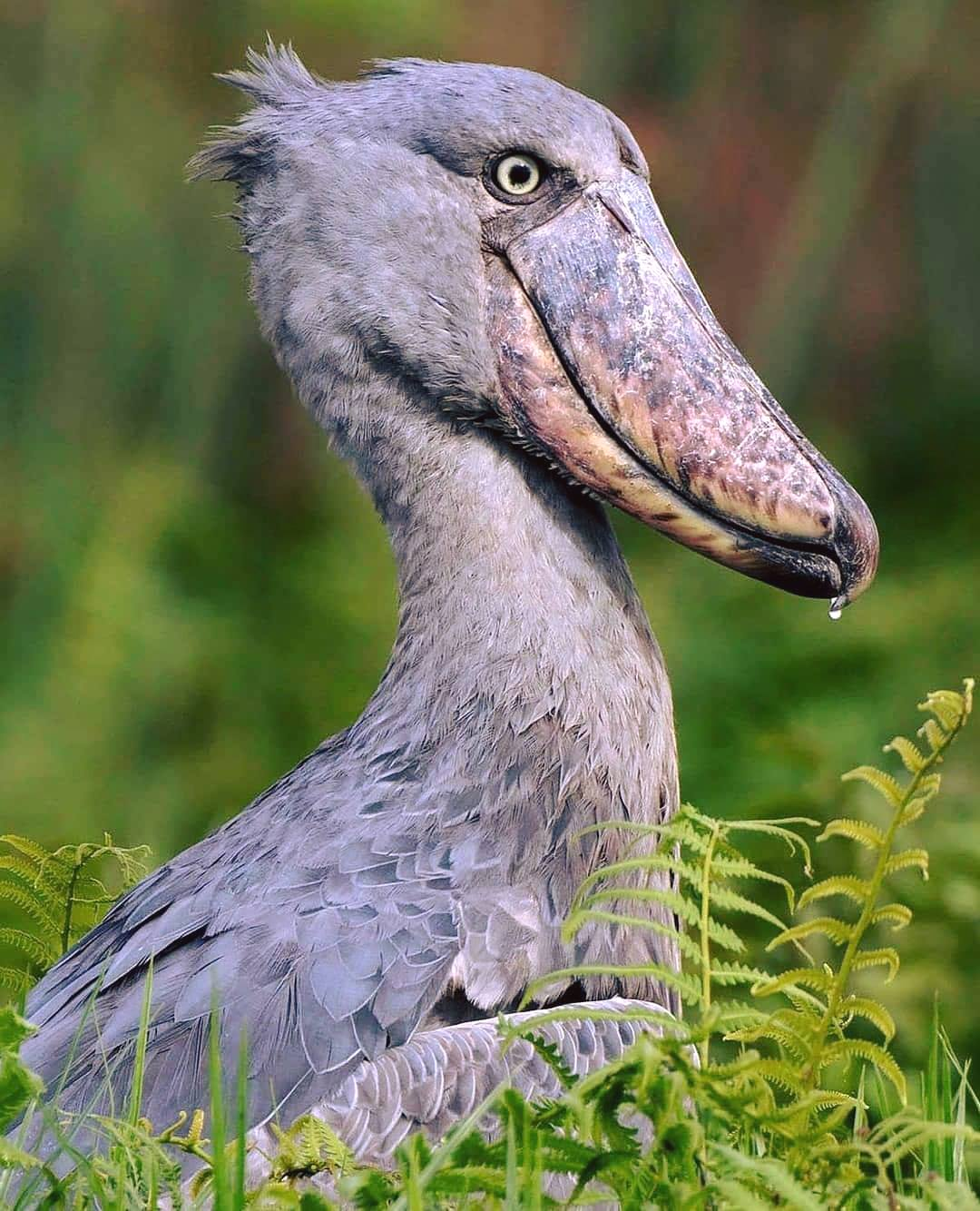
These pre-historic looking birds stalk the marshes of South Sudan, Uganda and elsewhere in East Africa.
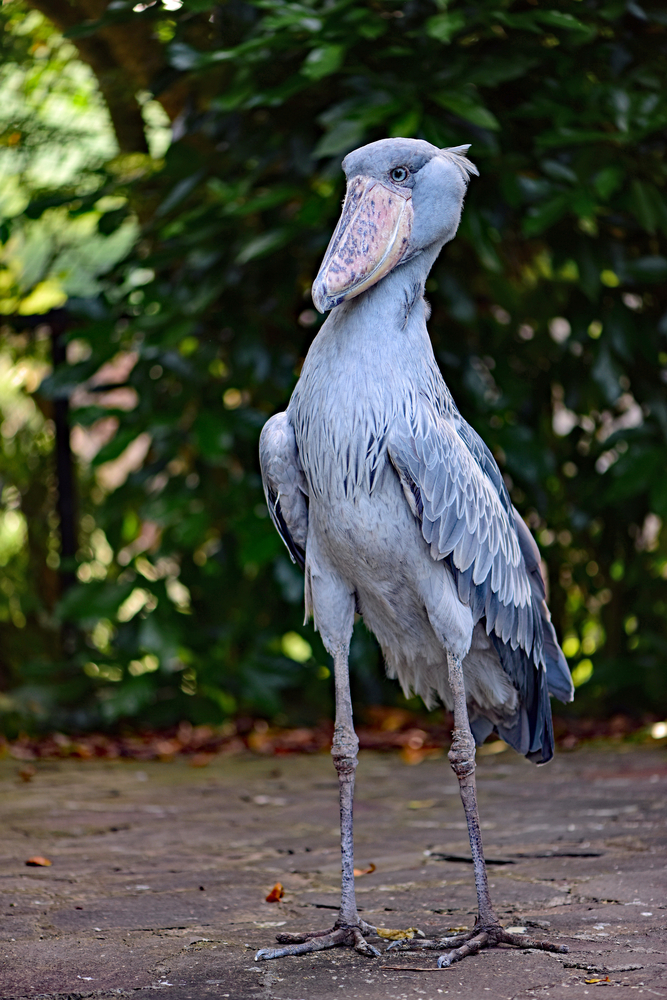
There are a lot of misconceptions about the shoebill storks, the first being that they aren’t actually storks.
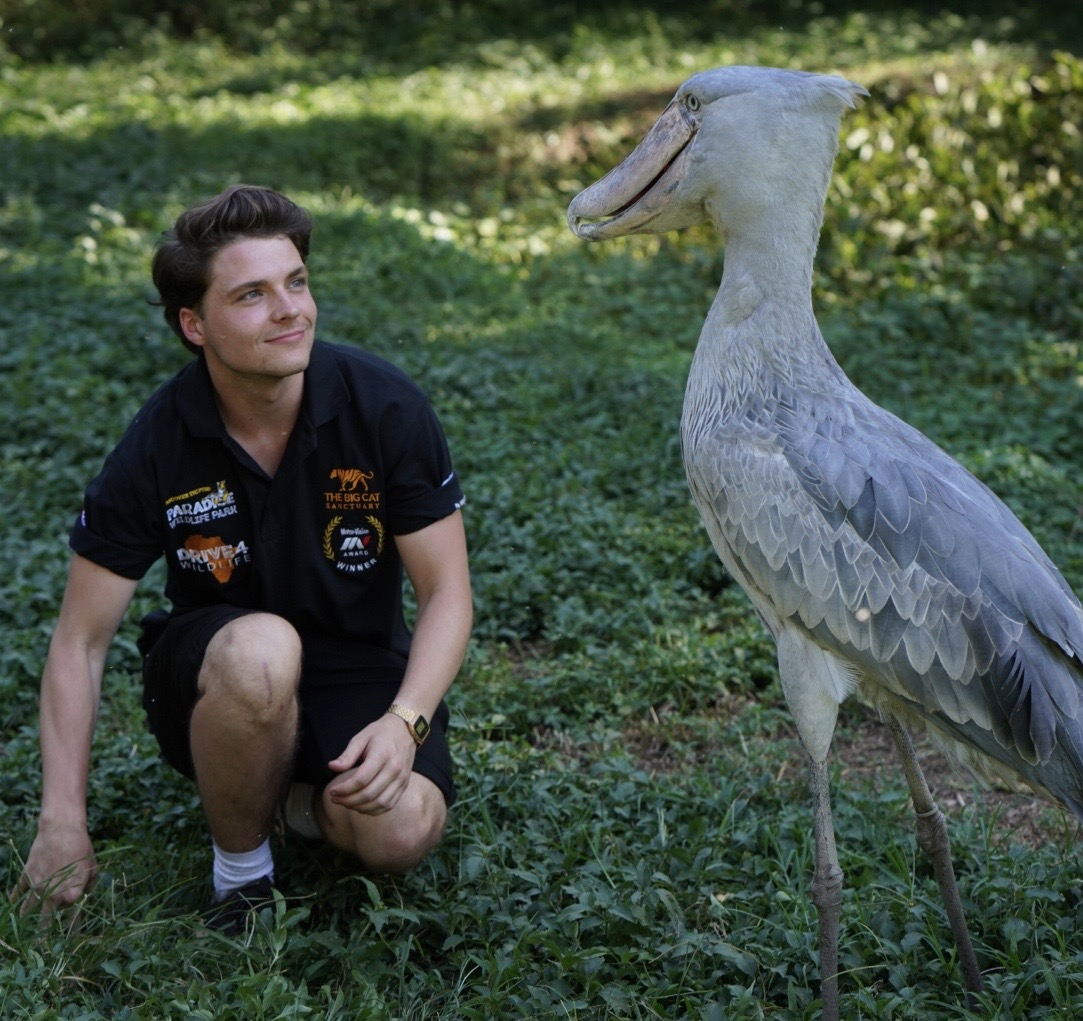
The shoebills most unique feature is its foot-long bill which looks like something out of the prehistoric era.
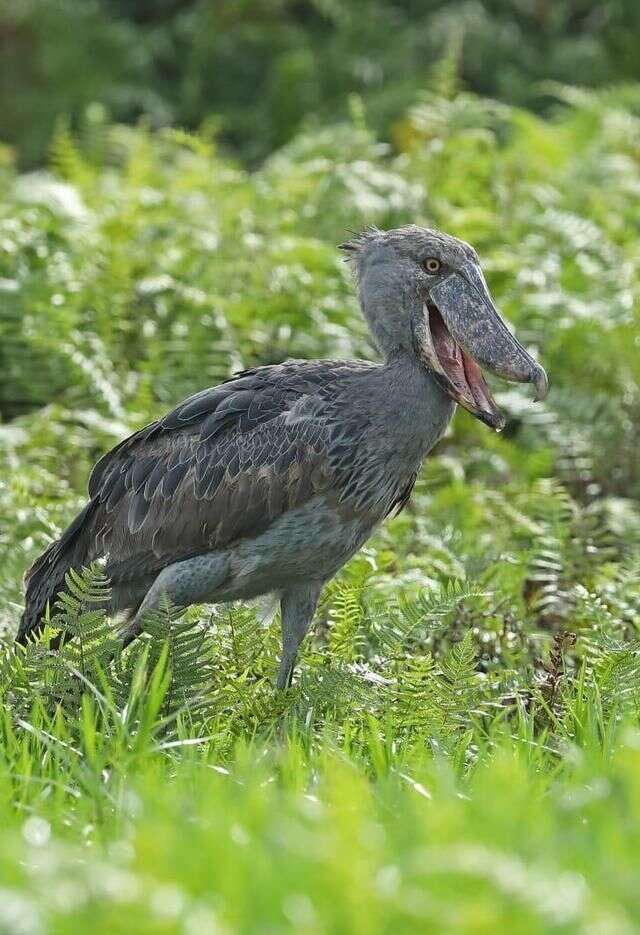
Its five inches wide and has sharp edges and a sharp hook at the end and has been compared to a dutch clog.
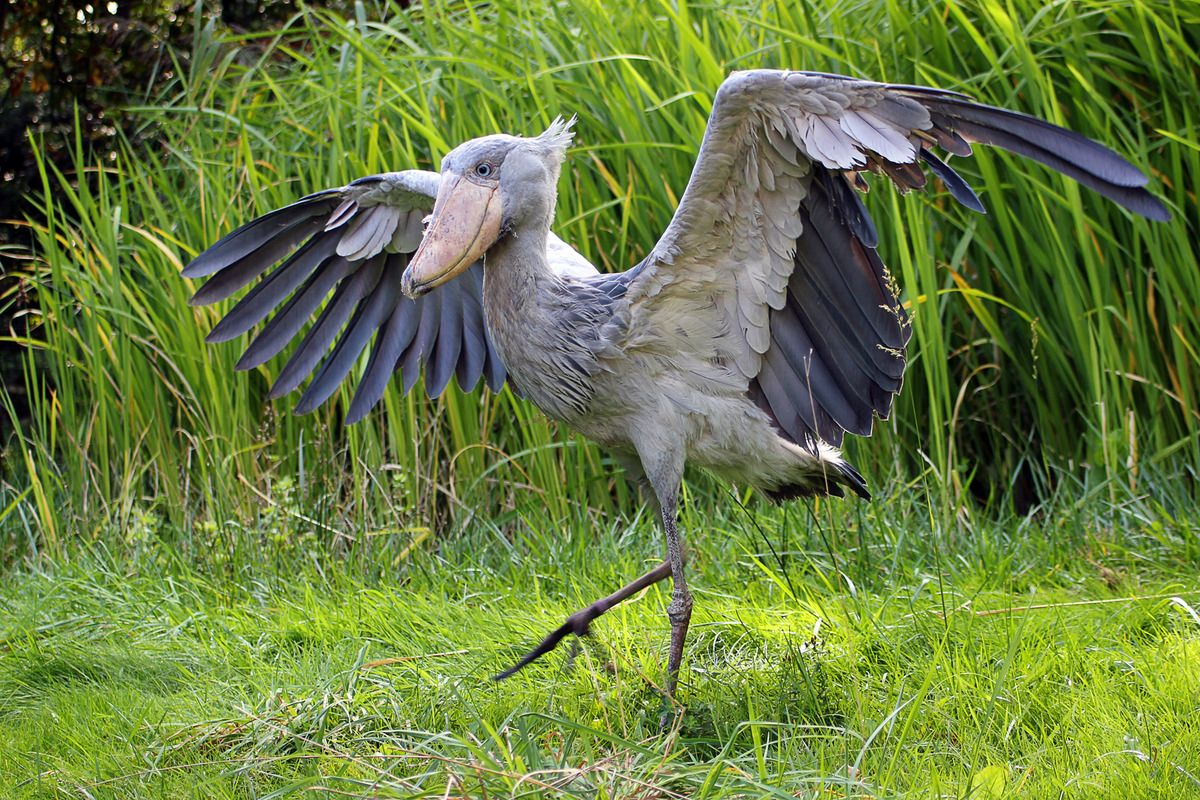
The unique bill is specialized to allow it to grab large pray such as lungfish, snakes and even baby crocodiles and Nile monitor lizards.
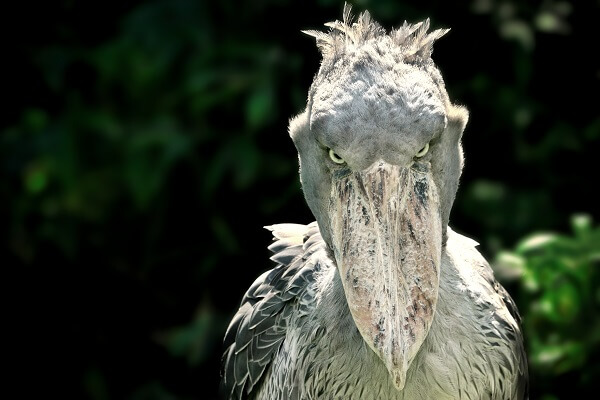
At first glance, it doesn’t look like the shoebill is an ambush predator, reaching heights of five feet tall and a wingspan of 8 foot, they aren’t the smallest of predators.
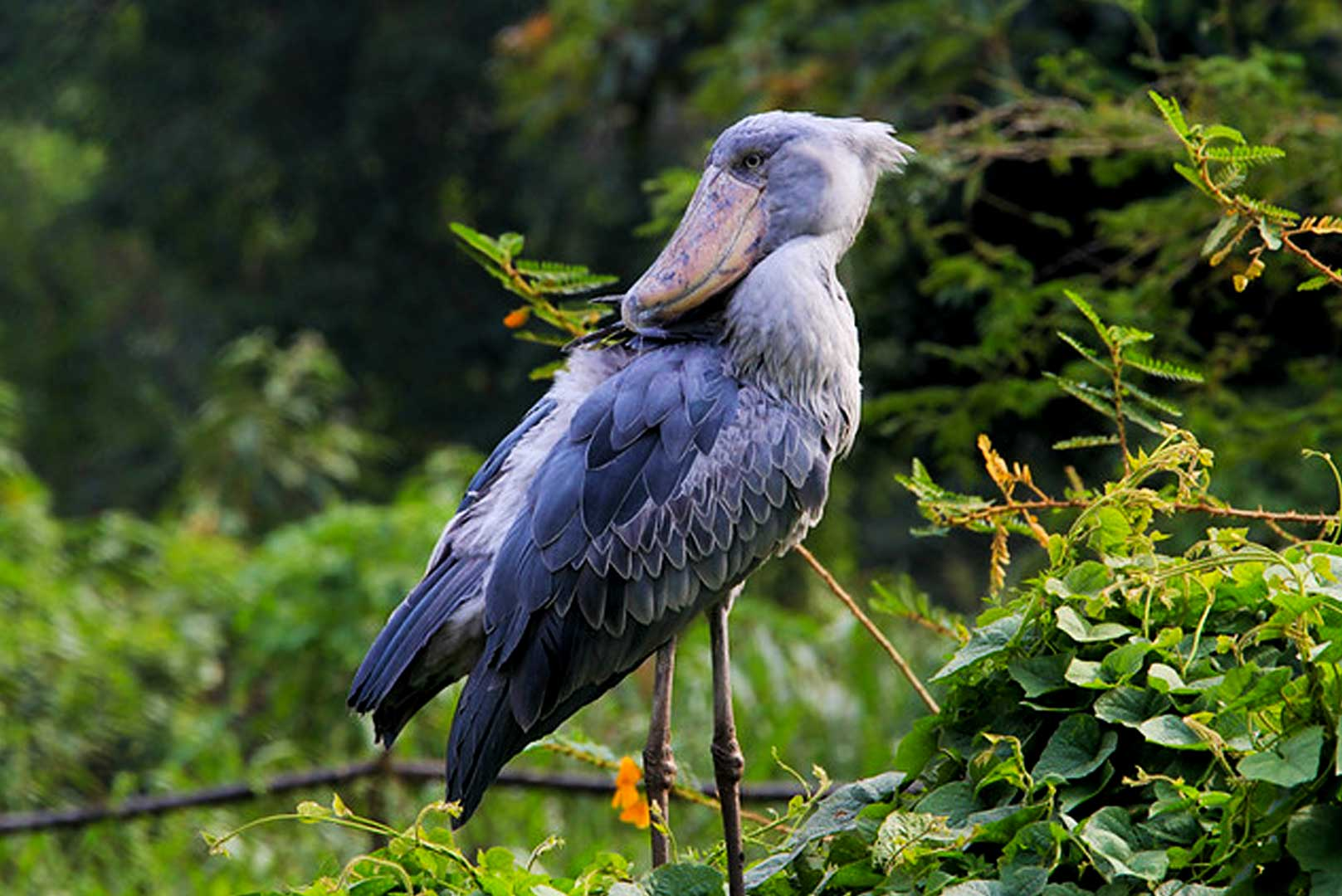
They have long thin legs with large feet that are ideal for walking on vegetation in the freshwater marshes and swamps they inhabit in East Africa.
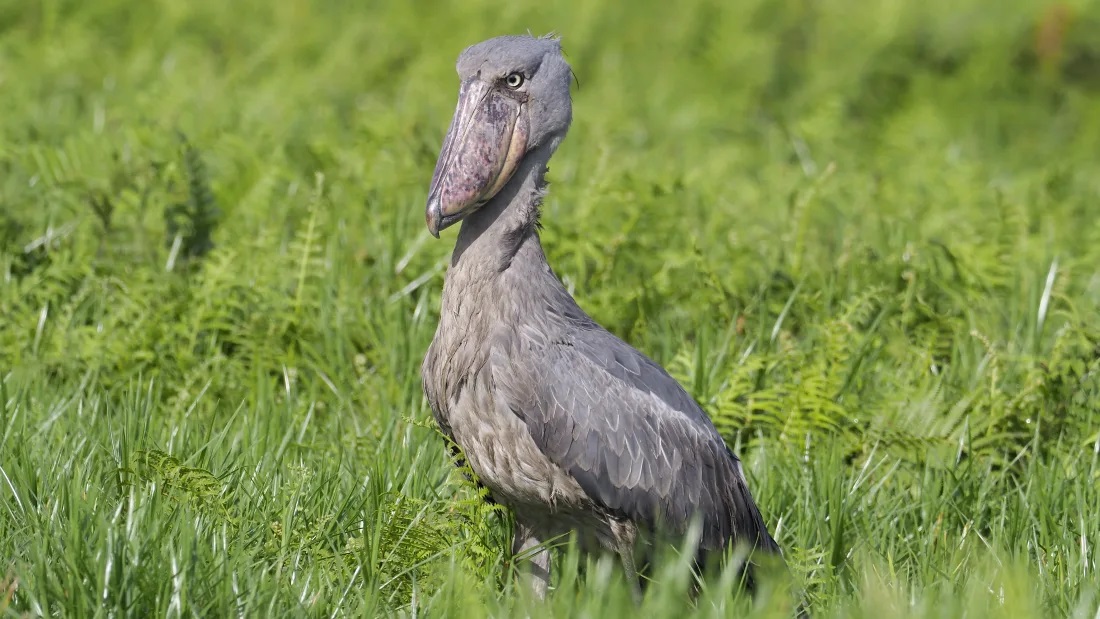
Shoebills can stand virtually motionless for hours, this means when a lungfish comes up for it, it may not notice the shoebill until its too late.
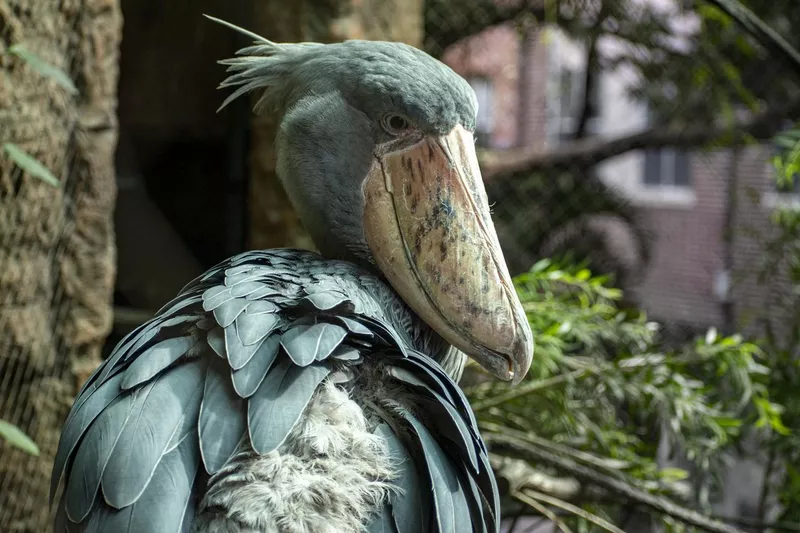
They also practice urohydrosis, which is the habit of defecating on their legs to lower their body temperature.
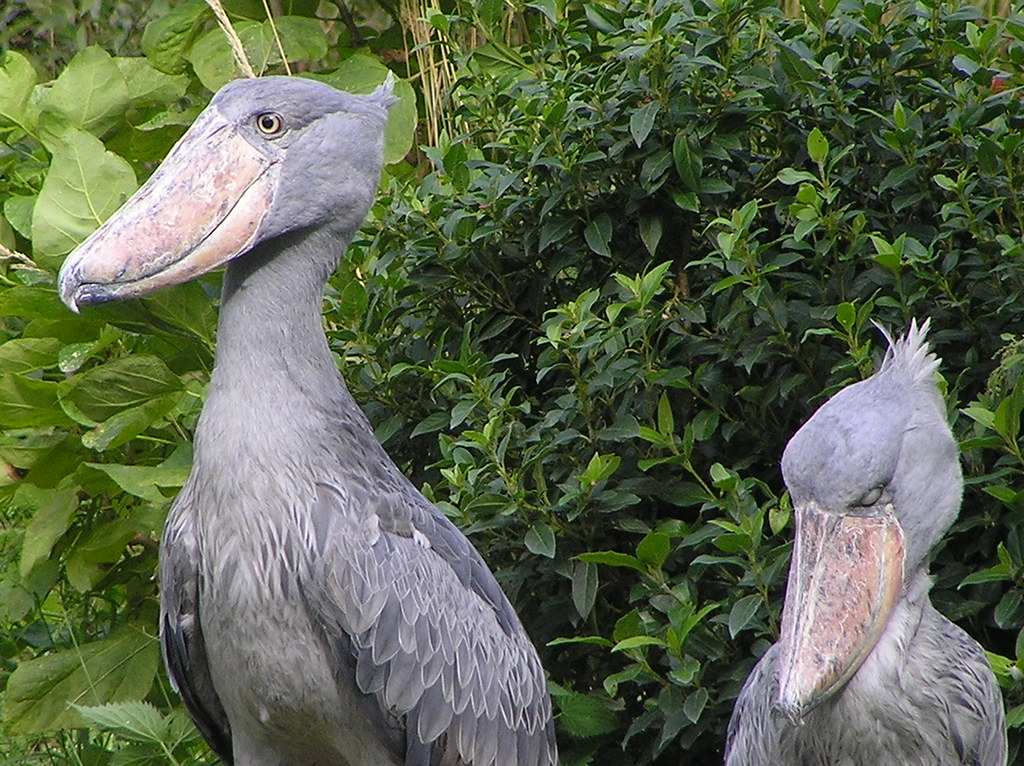
This characteristic confused taxonimists and some felt the shoebill placed it within the family of true storks and they also did this.
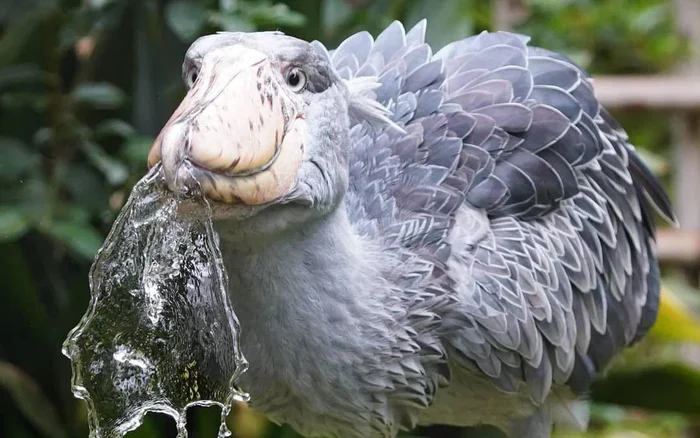
In fact, they are in a family all on their own, they share traits with storks and herons, but their closest relatives are the pelicans.
These creatures earned a fierce reputation and are no means a safe bird for a stranger to approach, as some amateur photographers have found out the hard way.

